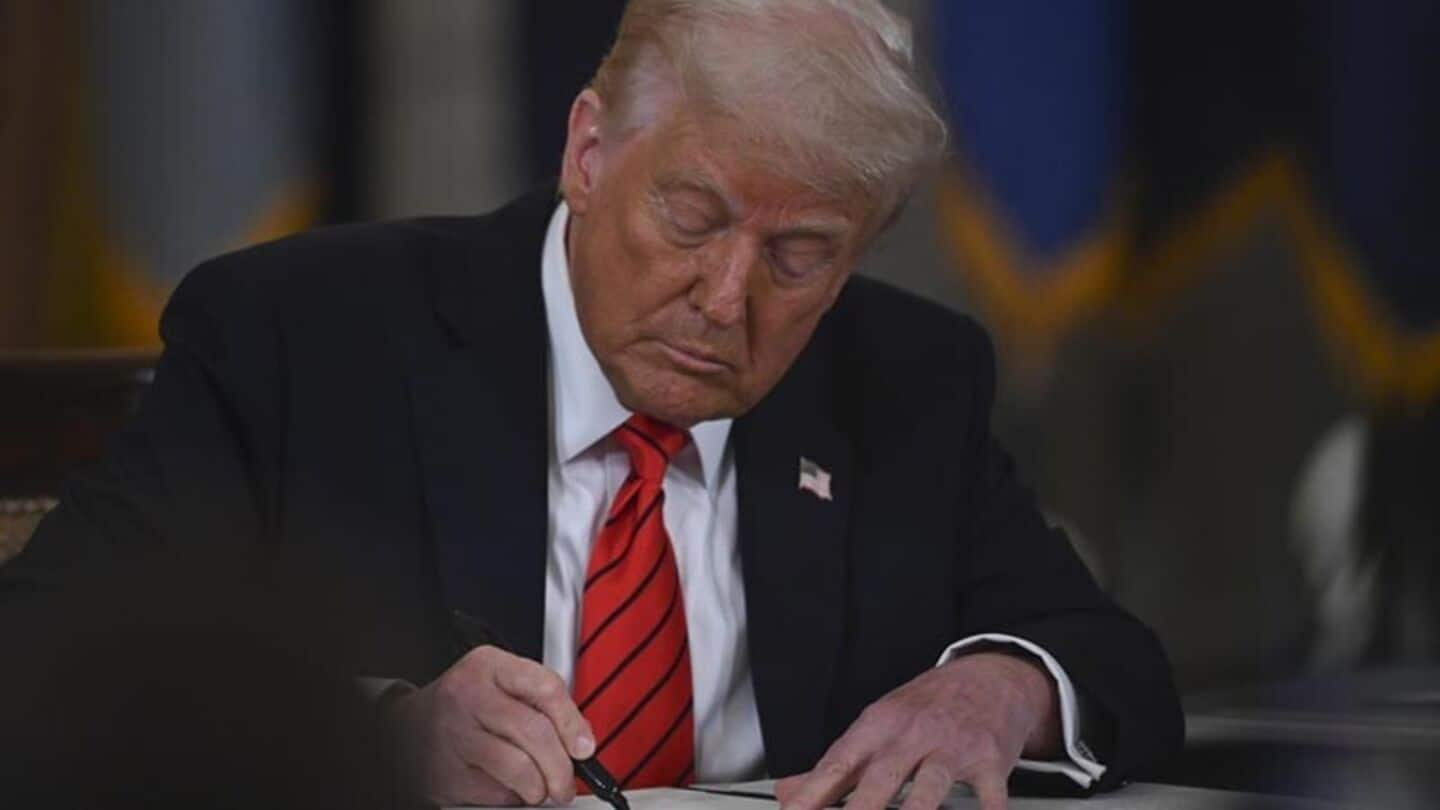
Trump cancels $4.9B in foreign aid, reigniting clash with Congress
What's the story
President Donald Trump has announced his decision to cancel $4.9 billion in foreign aid spending approved by the US Congress. The move has sparked a new conflict over budgetary powers and control of government spending. The White House has informed Congress of the plan, using a mechanism known as "pocket rescission" to propose the fund cancellation late in the fiscal year.
Budget tactic
Controversy over legality of Trump's budget maneuver
The pocket rescission is a little-used budget maneuver that allows the president to propose canceling funds already approved by Congress. The last time this tactic was used was in 1977 under President Jimmy Carter. However, several senior members from both parties have called Trump's move illegal under the 1974 Impoundment Control Act, which was designed to prevent presidents from withholding congressionally approved funds.
Aid programs
Cuts target US peacekeeping contributions, democracy promotion funds
The funds targeted for cancellation by Trump are largely foreign aid programs run by the State Department and the US Agency for International Development (USAID). These include contributions to the United Nations, overseas peacekeeping, and democracy-promotion funds. The largest cut is $445 million from US peacekeeping contributions, while another $132 million is proposed to be withdrawn from the State Department's Democracy Fund.
Congressional authority
Democratic leaders warn move could derail budget negotiations
The move to cancel these funds would effectively bypass Congress's power of the purse, the constitutional authority to decide how taxpayer money is spent. This has drawn criticism from Democratic leaders who say it could jeopardize budget negotiations aimed at preventing a government shutdown on October 1. The dispute comes as Congress races against time to pass a bipartisan funding bill before the new fiscal year begins.